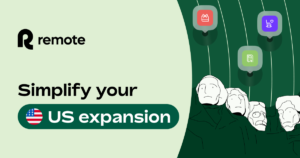The Rise of the Gig Economy: How to Thrive in the New World of Work

The gig economy is a term used to describe the growing trend of people working freelance or contract jobs, rather than traditional full-time employment. This trend has been driven by a number of factors, including the rise of the internet and mobile technology, which have made it easier for people to find and connect with work opportunities.
The gig economy offers a number of advantages for workers, such as flexibility, autonomy, and the ability to work from anywhere. However, it also comes with some challenges, such as a lack of job security, benefits, and paid time off.
If you are considering entering the gig economy, there are a few things you can do to thrive in the new world of work.
- Build your skills and expertise. In the gig economy, you are your own brand. The more skills and expertise you have, the more marketable you will be to potential clients.
- Network with other professionals. Networking is essential for finding work in the gig economy. Get involved in industry associations, attend conferences, and connect with people on social media.
- Create a strong online presence. Your online presence is your digital portfolio. Make sure your website and social media profiles are up-to-date and reflect your skills and expertise.
- Be professional and reliable. When you work with clients, it is important to be professional and reliable. This means meeting deadlines, communicating effectively, and delivering high-quality work.
- Set boundaries. It can be easy to get burned out in the gig economy. It is important to set boundaries between your work and personal life.
The gig economy is a rapidly growing trend that is changing the way we work. By following these tips, you can thrive in the new world of work and build a successful career as a gig worker.
The gig economy is a new and evolving landscape, but it offers many opportunities for those who are willing to work hard and be prepared. By following these tips, you can thrive in the new world of work and build a successful career as a gig worker.
Challenges of the gig economy
- Lack of job security. Gig workers are not typically offered job security or benefits such as health insurance or paid time off.
- Uncertain income. Gig workers’ income can vary depending on the number of projects they have and the amount of time they work.
- Lack of support. Gig workers may not have access to the same level of support as traditional employees, such as mentorship or training programs.
- Taxes. Gig workers are responsible for paying their own taxes, which can be complex and time-consuming.
Despite these challenges, the gig economy offers many benefits for workers, including:
- Flexibility. Gig workers can set their own hours and work from anywhere.
- Autonomy. Gig workers have more control over their work than traditional employees.
- Opportunity to learn new skills. Gig workers can learn new skills and gain experience by working on a variety of projects.
- Potential for higher earnings. Gig workers can earn more money than traditional employees if they are able to find high-paying projects.
The gig economy is a rapidly growing trend that is changing the way we work. By understanding the challenges and benefits of the gig economy, you can make an informed decision about whether it is the right fit for you.
The Future of the Gig Economy
The gig economy is still in its early stages, and it is unclear what the future holds. However, there are a few trends that suggest that the gig economy will continue to grow in the coming years.
One trend is the increasing use of technology to connect gig workers with clients. Online platforms such as Upwork and Fiverr make it easy for people to find work and get paid.
Another trend is the growing demand for skilled workers. As the economy becomes more complex, businesses are increasingly looking for freelancers with specialized skills.
Finally, the gig economy is becoming more mainstream. More and more people are realizing the benefits of working as a gig worker, and this trend is likely to continue.
How to Regulate the Gig Economy
The rise of the gig economy has raised a number of regulatory challenges. For example, gig workers are not typically considered employees, which means they are not entitled to the same benefits and protections as traditional employees.
There is a growing debate about how to regulate the gig economy. Some people argue that gig workers should be classified as employees, while others argue that they should be treated as independent contractors.
The government is still trying to figure out how to regulate the gig economy. However, it is important to find a solution that protects the rights of gig workers while also allowing businesses to innovate and create new jobs.
Conclusion
The gig economy is a rapidly changing landscape, but it offers many opportunities for those who are willing to work hard and be prepared. By understanding the challenges and benefits of the gig economy, you can make an informed decision about whether it is the right fit for you.
The gig economy is a new and evolving landscape, but it offers many opportunities for those who are willing to work hard and be prepared. By following these tips, you can thrive in the new world of work and build a successful career as a gig worker.






